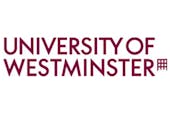At the University of Westminster, I am Director of the Institute for Modern and Contemporary Culture. My research is predominantly concerned with 20th century British and American literature, art and photography. Most of my work deals variously with places and politics.
I have written on poetry, fiction, art, photography, and architecture. In Writing the Radical Center (2001), William Carlos Williams's modernist place-making is read as an unstable fusion of progressive liberalism and avant-garde constructivism. Dirty Wars (2009) approaches the permanent militarisation of the Western US after Pearl Harbour through analysis of fictional and non-fictional responses to the military-industrial de- and reformation of purloined Western landscapes.
I studied at the University of East Anglia, UCL, and King's College, Cambridge. I was an Adrian Research Fellow at Darwin College, Cambridge before taking up a post at Newcastle University, where I taught until 2012.
My current research falls into two main areas: landscape in photography and art since the 1960s, and California from Nixon to Reagan. The first of these projects deals with the dismantling and reconstruction of the conventions of landscape representation among conceptual and post-conceptual artists and critical landscape photographers; it looks at the ways in which photography approaches questions of visibility and invisibility in relation to matters pertaining to, for example, security, conflict, and environmental despoliation; and the ways generic categories such as documentary and abstraction are addressed through the use of new imaging technologies. The second project, concerned with California from the 1960s through the 1980s, addresses the unravelling of the post-war consensus and the rise of neoliberalism through readings of a range of fictional and non-fictional literature and film.
I am also involved in a number of collaborative research projects. These include an analysis of the continuities of the Cold War into the present, in terms of, for example, the pervasiveness of systems thinking and the militarisation of everyday life; an investigation of the catastrophic imaginary in relation to perceived global threats such as environmental collapse or the purported impending technological singularity; and an examination of the role of the local art school in British cultural life during the post-war period.
Experience
-
–presentProfessor in English, University of Westminster
- Website
- Article Feed
- Joined


